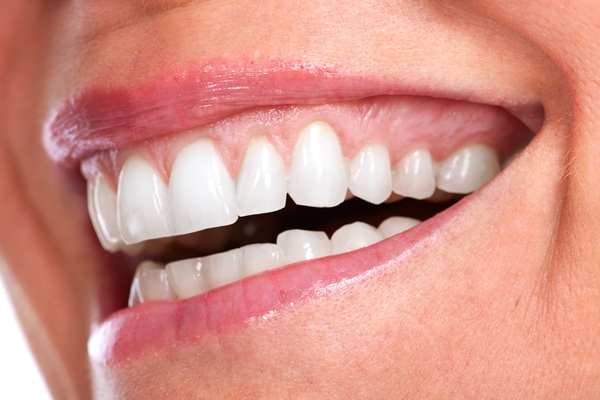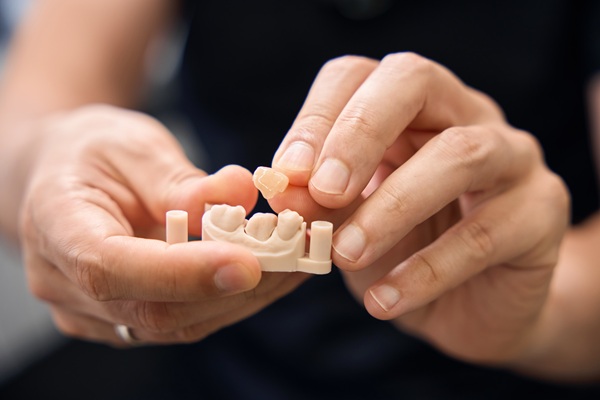Common TMJ Treatments from an Oral Surgeon

Temporomandibular joint (TMJ) disorders can cause a lot of discomfort and impact everyday activities such as eating and speaking. Fortunately, TMJ treatment options by an oral surgeon can help alleviate pain, restore function, and improve your overall quality of life. These treatments are tailored to your specific needs, addressing both the symptoms and underlying causes of TMJ disorders.
Understanding TMJ disorders
The temporomandibular joint connects the lower jaw (mandible) to the skull like a sliding hinge, allowing jaw movement for basic functions like chewing and talking. TMJ disorders occur when this joint becomes inflamed, damaged, or misaligned. According to the Mayo Clinic, common symptoms of TMJ disorders include:
- Pain or tenderness in the jaw
- Pain in one or both of the temporomandibular joints
- Pain in and around the ear
- Difficulty or pain while chewing
- Facial pain and migraines
- Joint locking, making it difficult to open and close the mouth
TMJ disorders can also cause a clicking sound or grinding sensation when opening one's mouth or chewing food.
Nonsurgical TMJ treatments
In many cases, the symptoms associated with TMJ disorders are temporary. Many patients can find relief with nonsurgical treatments, such as oral appliances, physical therapy, and medication. These approaches aim to reduce inflammation and alleviate stress on the joint. These conservative TMJ treatment methods can provide relief in many mild to moderate cases. However, in severe cases, some individuals may benefit from more extensive TMJ treatment options from an oral surgeon.
Minimally invasive TMJ treatments
An oral surgeon may suggest minimally invasive treatments for individuals whose symptoms persist despite nonsurgical approaches. These options include arthrocentesis and injections. Arthocentesis involves the oral surgeon flushing the joint with sterile fluid to remove debris and reduce inflammation. It is often used for cases involving a locked jaw or acute pain.
Additionally, corticosteroid injections can reduce inflammation in the joint. Meanwhile, Botox injections may help relax overactive jaw muscles that contribute to pain. Minimally invasive treatments are often outpatient, allowing patients to recover quickly and return to regular activities.
Surgical TMJ treatments
Surgical intervention may be necessary when nonsurgical and minimally invasive treatments are insufficient to relieve a patient's symptoms. Surgical options for TMJ disorders include:
- Arthroscopy: This technique is where the oral surgeon uses a small camera and instruments to diagnose and treat joint issues, such as removing damaged tissue or repositioning the disc within the joint.
- Modified condylotomy: The modified condylotomy addresses the TMJ indirectly by removing the mandible without affecting the joint. It may help treat pain or if the patient experiences a locked jaw.
- Open-joint surgery: In severe cases, the joint may require direct repair or reconstruction. Oral surgeons use this approach for structural abnormalities or advanced joint damage.
- Total joint replacement: For patients with significant joint degeneration, the oral surgeon can place a prosthetic joint to restore function and alleviate pain.
Choosing the right TMJ treatment
The oral surgeon will evaluate each patient thoroughly to determine whether they qualify for nonsurgical, minimally invasive, or surgical TMJ treatment. It will depend on the severity of the patient's symptoms, the cause of the disorder, and their overall health. The oral surgeon will use this information to diagnose the condition accurately and develop a treatment plan that offers the best possible option for long-term relief.
Learn more about our TMJ treatment options
Village Center Dentistry offers TMJ treatment in the Katy area. Our team is here to help you find the treatment plan that best addresses your unique needs. Call our office to learn more or to schedule a consultation.
Request an appointment here: http://villagecenterdentistry.com or call Village Center Dentistry at (281) 644-0134 for an appointment in our Katy office.
Check out what others are saying about our dental services on Yelp: TMJ Treatment in Katy, TX.
Related Posts
Dental veneers create a brighter, more uniform smile and often help correct cosmetic concerns that make teeth look uneven or worn. Many patients want improvements that look natural while still enhancing confidence in everyday settings. Veneers offer a versatile option for refining color, shape, and symmetry in some cases without extensive orthodontic treatment. A dentist…
An implant crown is made of strong and safe materials to give the patient a reliable long-term replacement option for missing teeth. If you have questions about the materials used to make an implant crown, this review can help you understand what exactly each component is made of and why dentists use these particular materials.There…
Denture repair is a common need for patients who wear partial or full dentures. While these oral appliances are strong, they are prone to breaking because of their delicacy. When a break occurs, it can be hard to know whether a denture repair can take place or if a complete replacement is necessary. Thankfully, patients…
A dental crown is a long-lasting dental restoration that helps restore the strength, appearance, and function of a severely damaged tooth. While these restorations are strong, proper dental crown care ensures their durability and prevents potential complications. The following guidelines can help you preserve your newly restored tooth and maintain your long-term oral health.A dental…


